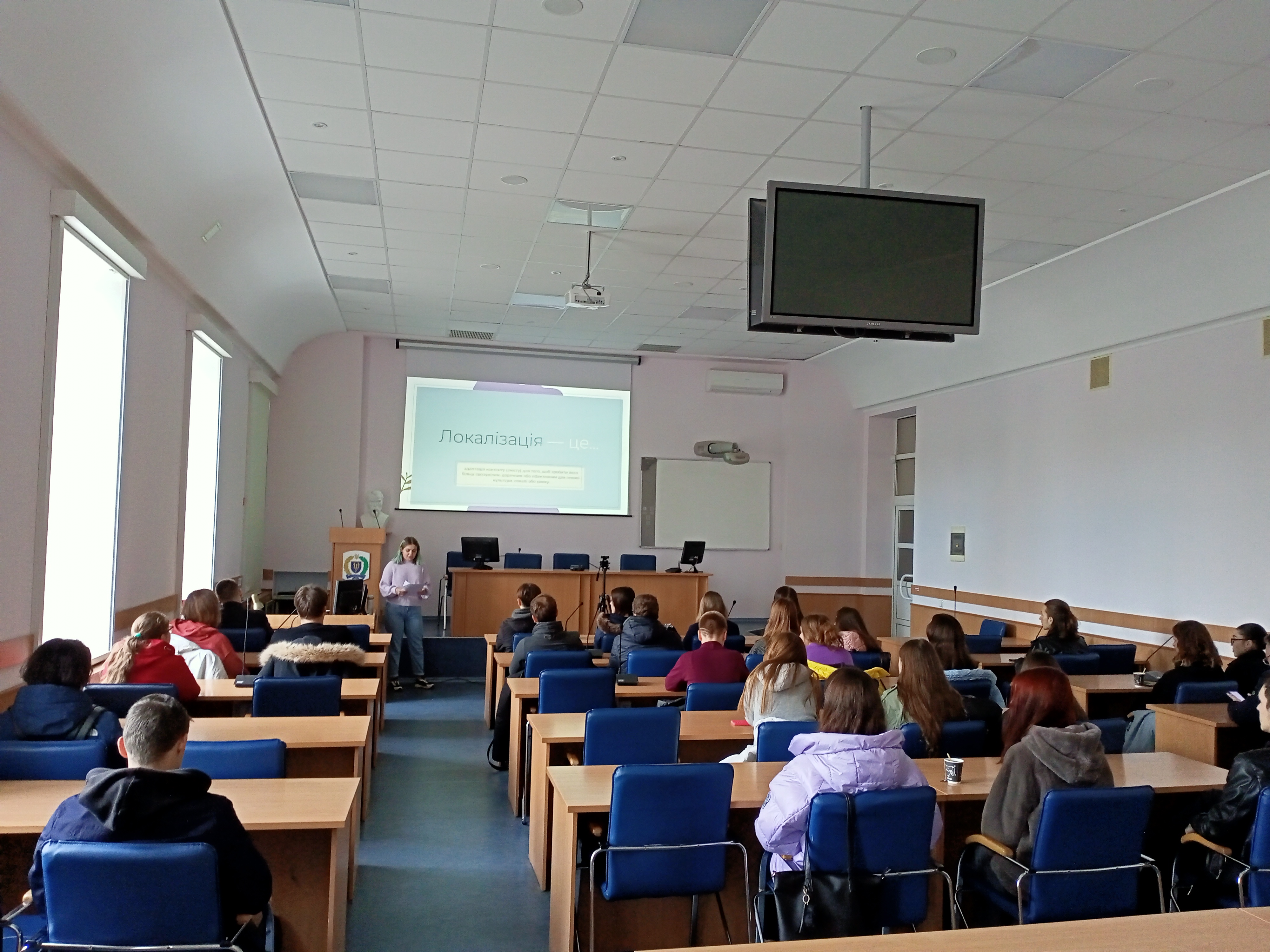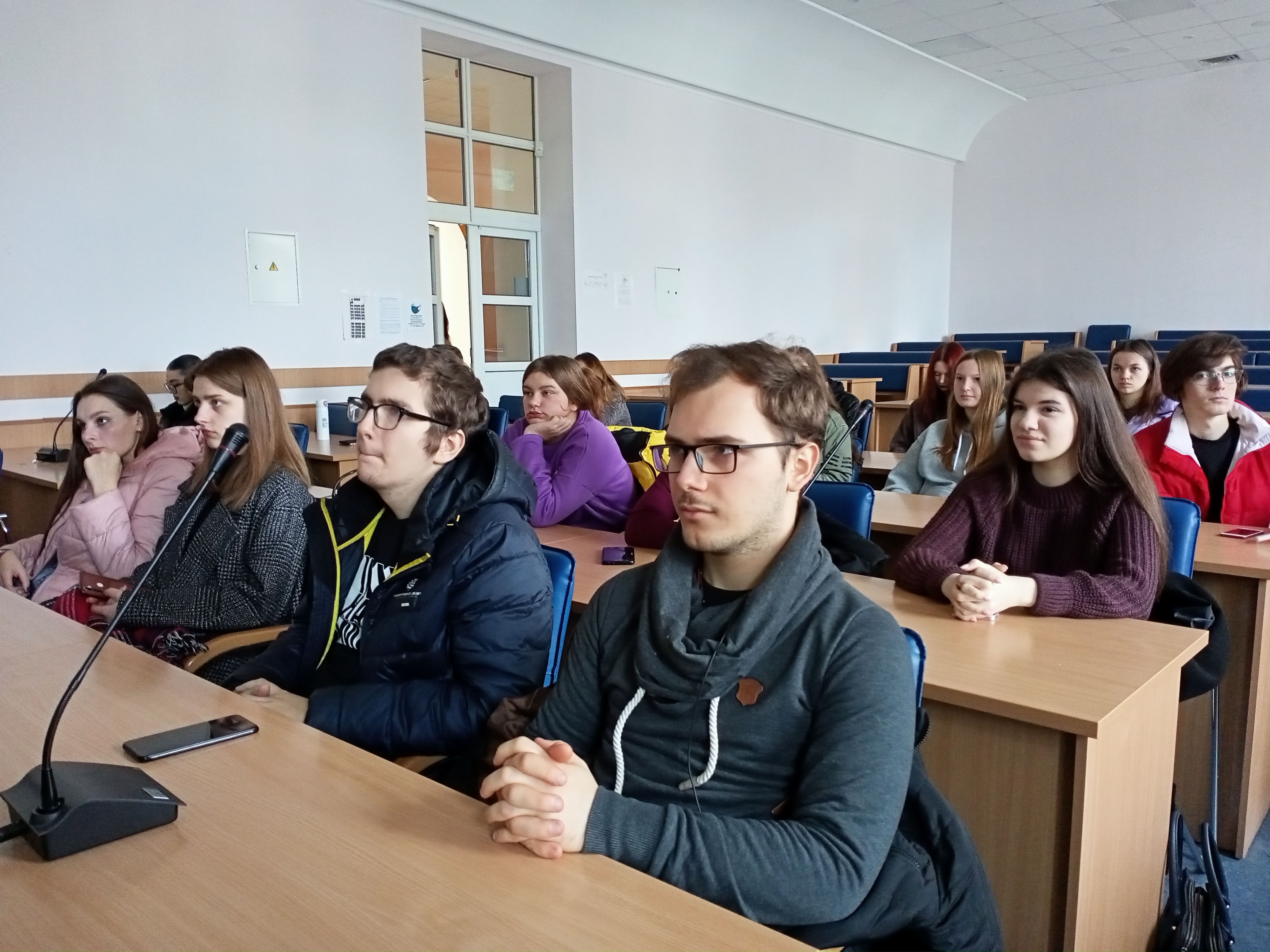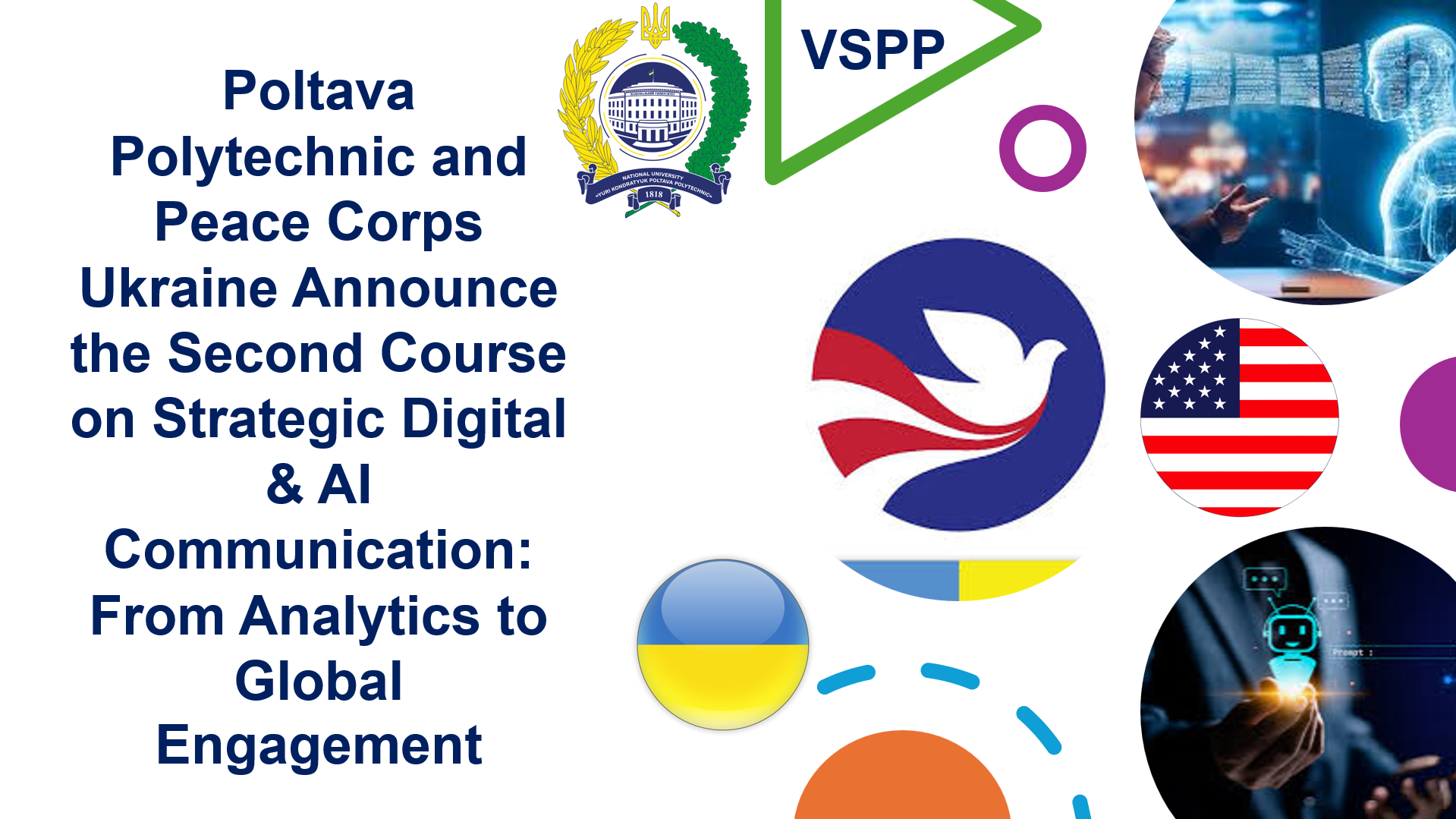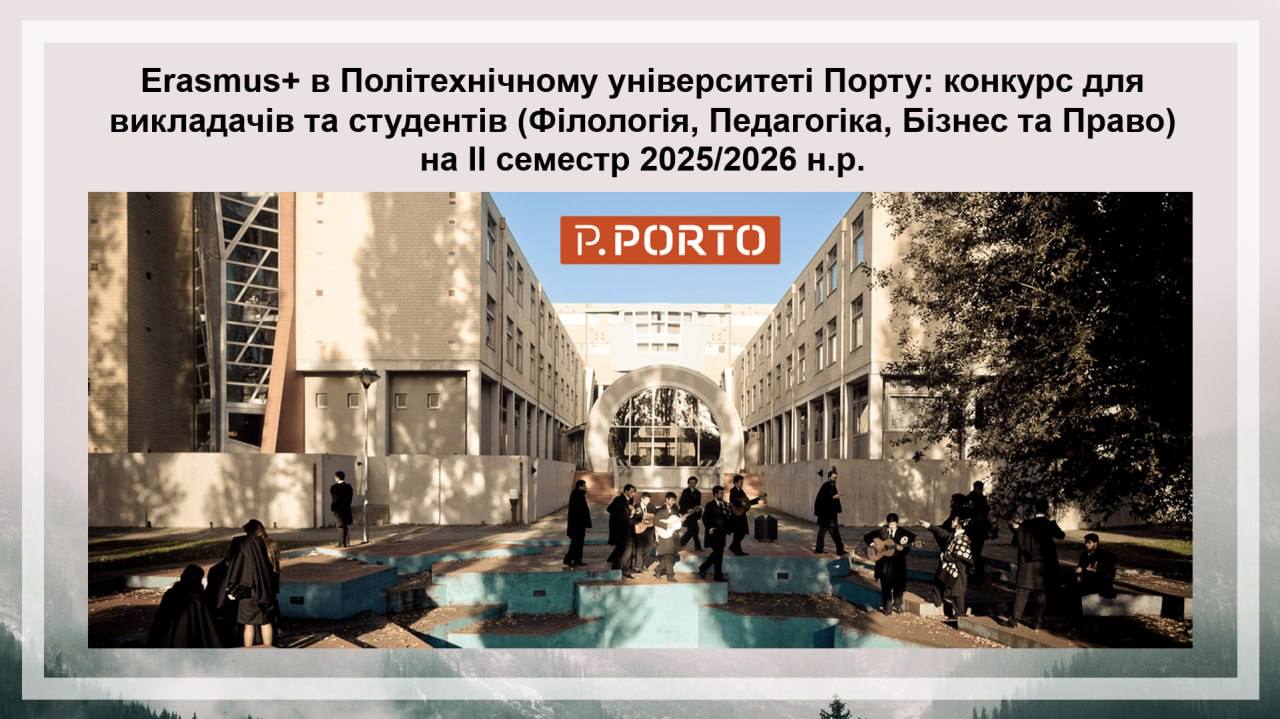On October 21, 2022, participants of the students’ scientific club “Philology” under the leadership of the Chairman of the Council of Young Scientists of the Faculty of Philology, Psychology and Pedagogy, Candidate of Philological Sciences, Associate Professor of the Department of Germanic Philology and Translation of the National University “Yuri Kondratyuk Poltava Polytechnic”, member of the Expert Council of Young Scientists at the Ministry of Education and Science of Ukraine, Anna Pavelieva, held another sitting dedicated to localization, opportunities for students in this field.


According to the scientist, total digitalization and globalization have led to the fact that all Ukrainians actively use foreign goods, social networks, websites, watch movies and play video games, so the issue of the Ukrainian localization is becoming especially relevant.




Localization is one of the most relevant areas of translation activity, since it is this process that ensures the availability of Ukrainian versions of our favorite websites and mobile applications, allows you to install the Ukrainian language on your computer, watch Hollywood movies with Ukrainian dubbing, and read information about products in your native language. Localization is developing in parallel with information technologies, and therefore is now one of the leading industries in the world.
.jpg)

During the sitting, philology students got acquainted with the concept of localization, its features, the main roles and processes of localization, as well as with the activities of the international association Women in Localization, and received practical advice for beginner translators.
Localization is a new, dynamically developed direction in translation, which arose in the 90s and is becoming more and more widespread in connection with the evolution of information technologies, the development of various software, websites, computer games and the need for their translation. A special direction of localization has become the translation of computer games, the development of which is gaining more and more momentum. Numerous elements that occur in the text are subjected to localization: the name of the game, proper names, invented words and expressions, metaphors or units that have equivalent counterparts in other languages, the translation of which in some cases requires special skill and a creative approach.




The issue of localization in Ukraine is of particular interest, as the Law on the Functioning of the Ukrainian Language as the State Language defines a wide range of websites, pages and types of software that must have Ukrainian localization, but the situation with content that is aimed at Ukrainians in the information technology field remains distant from ideal. Club participants discussed the reasons that led to this issue and possible ways to solve it. In particular, the students noted that Ukrainian users should take the initiative and show the developers that they need the Ukrainian version of a certain service, computer game or program.


After a general discussion of localization phenomena, master’s student at the Faculty of Philology, Psychology and Pedagogy Iryna Lobko shared practical advice for beginner translators, which she received at an international event organized by the Women in Localization association. The student spoke in more detail about the duties of various employees of the localization team, features of the localization services market, work processes in video game localization, and also noted important points for a good resume and successful job search.

“According to the speakers representing leading international localization companies, for those who want to start their journey in translation or localization, the key is to have experience – work or internships in the relevant field, participation in volunteer projects or student internships. It is worth trying your hand at internships while still studying, so that after graduating from the university you already have some experience, since it is extremely important to have specialized translation equipment, to improve communication and translation skills,” – commented Iryna Lobko.

The master’s student also devoted a separate part of the report to real opportunities for students that will help to gain practical experience and extensive knowledge of translation and localization, presenting, in particular, the Crowdin platform, on which female philology students of our university have already completed their internships.

At the end of the club sitting, students and the leader of the club discussed current issues in the localization field, job search in the translation industry in Ukraine, internships and volunteer translations, received additional resources for familiarization with the topic and search for opportunities.

It should be recalled that the sittings of the students’ scientific club “Philology” take place at the Faculty of Philology, Psychology and Pedagogy of the Poltava Polytechnic at least once a month.
The next sittings of the club will be held on October 27 and November 1, 2022. Students, schoolchildren of Poltava and the region who are interested in the problems of linguistics, philology and translation studies are invited to participate.
For additional information on the time and place of the scientific club meetings, please contact the Department of Germanic Philology and Translation (Room 310-C) or directly the head of the club – Anna Kostiantynivna Pavelieva by phone: (095) 91-08-192
Recently, the Poltava Polytechnic teachers improved their digital skills in working with young people under the Erasmus+ programme, the scientist-philologist completed an internship at one of the leading German universities and presented the innovative as well as educational achievements of the Poltava Polytechnic to colleagues in Lower Saxony.
Previously, the club members discussed the peculiarities of translating Ukrainian realities into foreign languages, the FutureLearn educational platform for preparing for the IELTS Speaking Test, investigated the chronotopic coordinates of Mykola Gogol’s tale “May Night, or the Drowned Maiden”, presented translation studies of tokens for denoting food in the creative heritage of the writer, presented researches on the work of the author of the poem “Mazepa”, researched translations of phraseology in Mykola Gogol’s novel “Evening before Ivan Kupala”, studied the life and career of William Somerset Maugham, researched modern educational technologies, presented translation studies of the “father” of a classic detective and author of adventure novels, studied the creative heritage of Lake poets, exchanged life hacks on translating advertising slogans from global brands, researched a satirical novel by Mikhail Bulgakov and discussed the creative heritage of Polish science fiction writer, the work of the mystic writer and contemporary Nobel laureate writers, researched the origins of the popularity of British writers of the 20th century, discussed gender stereotypes imposed by advertising and the mass media, and conducted translation workshops for students of Scientific Lyceum No. 3.
Media Center of
National University “Yuri Kondratyuk Poltava Polytechnic”



